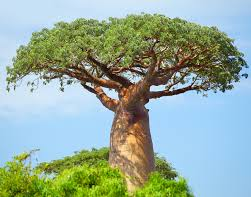Securing the History of Self: What of Long History?
- By kwende ukaidi
- •
- 04 Oct, 2024
- •
Celebrating the Great Afrikan History Continuum

Afrikan souls, as the primary people
of creation, naturally hold the longest history of any people. Yet, in a period
of interruption and disruption this people of unique longevity may be
shoehorned into unawareness of their grand and extensive truism. So, what does having
a long history mean? Of course, the length of past self-determined experience may
be readily identifiable as an important feature in this regard. However, the Afrikan
history continuum is not restricted to the past, for it includes past, present
and future history.
According to a contemporary mainstream source long history means:
“A history that spans a long period, typically with notable events · A long-established custom or belief that has been passed on from one generation to another”.
Even with such succinct and restrictive detail, this can have significant implication in relation to Afrikan life with the abundance of notable experiences and the vast array of meaningful inheritances that can be passed from one soul generation to the next.
Additionally, another mainstream source highlights that there are spheres in which a phenomenon referred to as ‘micro-histories’ exist void of their placement within a long history context. It suggests that there are advocates for the need of a long history context in the following way:
“Advocates of Long History argue that the proliferation of micro-histories need to be placed within a longer-term context to give them meaning”.
So, what then are micro-histories? Yet another mainstream source offers the following indication:
“Microhistory is a genre of history that focuses on small units of research, such as an event, community, individual or a settlement”.
In a state of disruption, such circumstance could have dire implications for Afrikan souls subject to ill-vices such as miseducation and the segmenting and interpreting of their history by others that mean the Afrikan ill. In this, microhistory as defined by others could see the ringfencing of history articulations to suit ill-intent to curtail the truism of whole Afrikan experience in the attempt to deny Afrikan souls their fullest potential and capability in service of their ascension.
Thus, to provide some level of detail specifically focussed on the Afrikan experience based on the sourced information gleaned, adaptation is considered apt. Alteration, may provide the a result that looks like the following:
“Afrikan history is of unique longevity and bountifulness. Therefore, it is inherently - not only long - but the longest history of humanity. This is grand inheritance for Afrikan souls to claim and continue to build history with and in service of Afrikan ascension. Whilst there are times that Afrikan souls may deem it necessary to focus upon specific areas of their history the totality of their richly endowed self-determined experience ought never be lost or bogusly repositioned to tertiary significance. In this, microhistory may have its place but not at the expense of its meaningful context of Afrikan longevity”.
The importance of Afrikan history to Afrikan people is fundamental and core whether they are located here, there or elsewhere. As such, Afrikan souls can do themselves a great service in the restoration of self-knowledge with the recovery of their history (and ability to make history) as well as taking care to retain its natural and superlative longevity regardless of any immediate focus. After all, civilisation is a dynamic phenomenon that is not of happenstance.
Afrikan Historia Msimu is an observance period for the duration of the tenth month of the year (so-called October). This is a special time for learning, growth and development of the Afrikan experience in the world. It is a time of spiritual and cultural elevation as Afrikan history is restored to fabric of life in the living knowingness of the then, the now and tomorrow. Great ones of the Afrikan journey are highlighted and the symbols relevant to the time invigorate life in the imperative onward flow of global Afrikan ascendancy. This wonderful observance is a part of the cultural calendar of the Universal Royal Afrikan Nation (URAN).
The Universal Royal Afrikan Nation (URAN) is an Afrikan-centred spiritual and cultural mission for ascendancy that embodies living spiritually and culturally rooted life. To find out more about URAN and its spiritual-cultural mission for liberty and nationhood click here. The exquisite URAN pendant can be obtained online by clicking here.
In his capacity as an Afrikan-centred spiritual cultural practitioner this author is available for further learning in this regard and also for the carrying out of ceremonies such as naming and name reclamation. For details please click here.
Afrikan World Studies programmes are important forms of study in understanding the Afrikan experience. There are a range of subjects covered on these programmes including History, Creative Production, Psychology and Religion. To find out more about these learning programmes please click here. For the video promo for these learning programmes click here.
At nominal cost, also consider acquisition of an a4 laminate poster of articulations by this author when visiting the Yemanja-O establishment to enrol, consult, learn, gather or otherwise.
Also, visit www.u-ran.org for links to Afrikan liberation Love radio programme on Universal Royal Afrikan Radio online.
